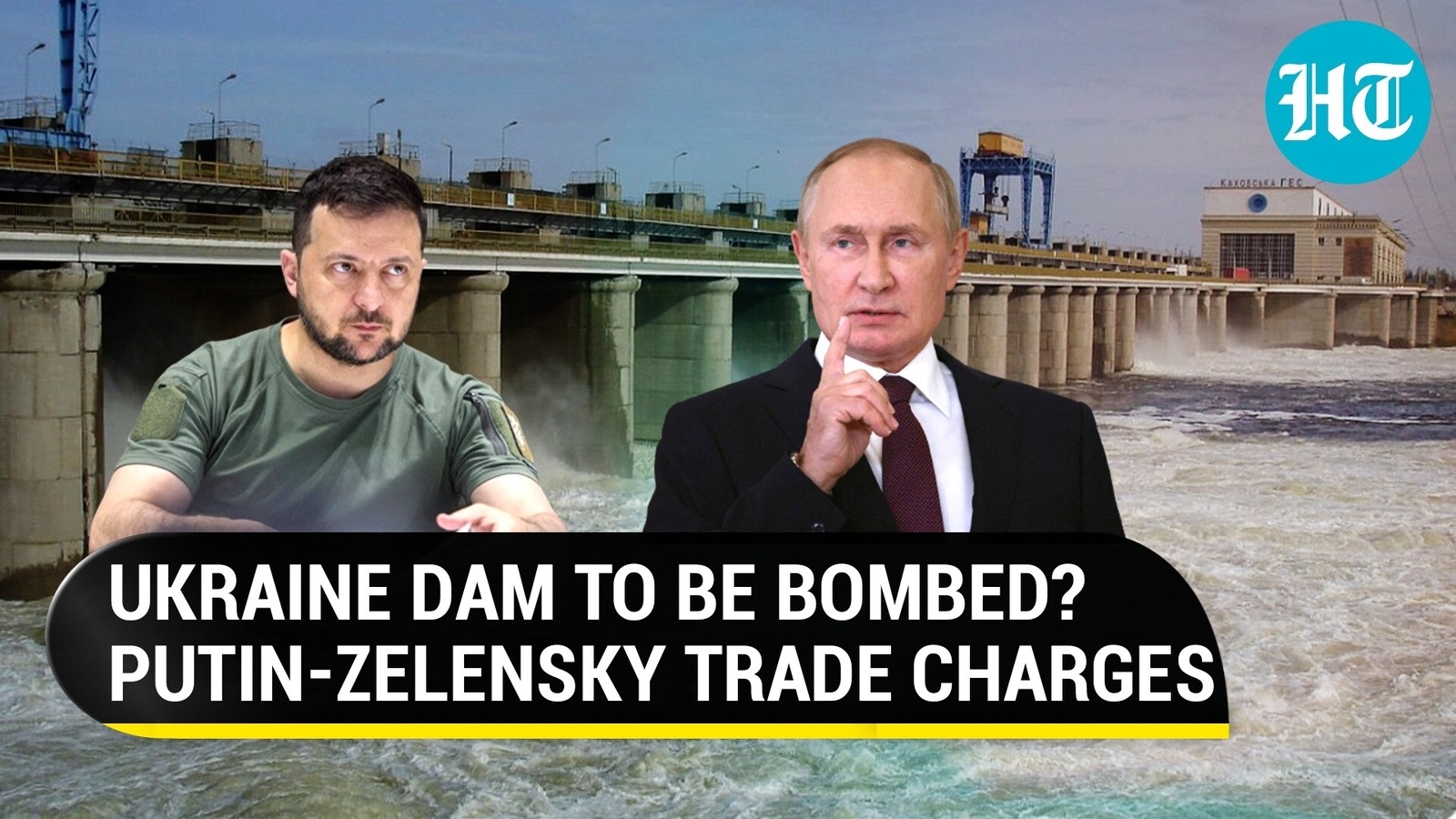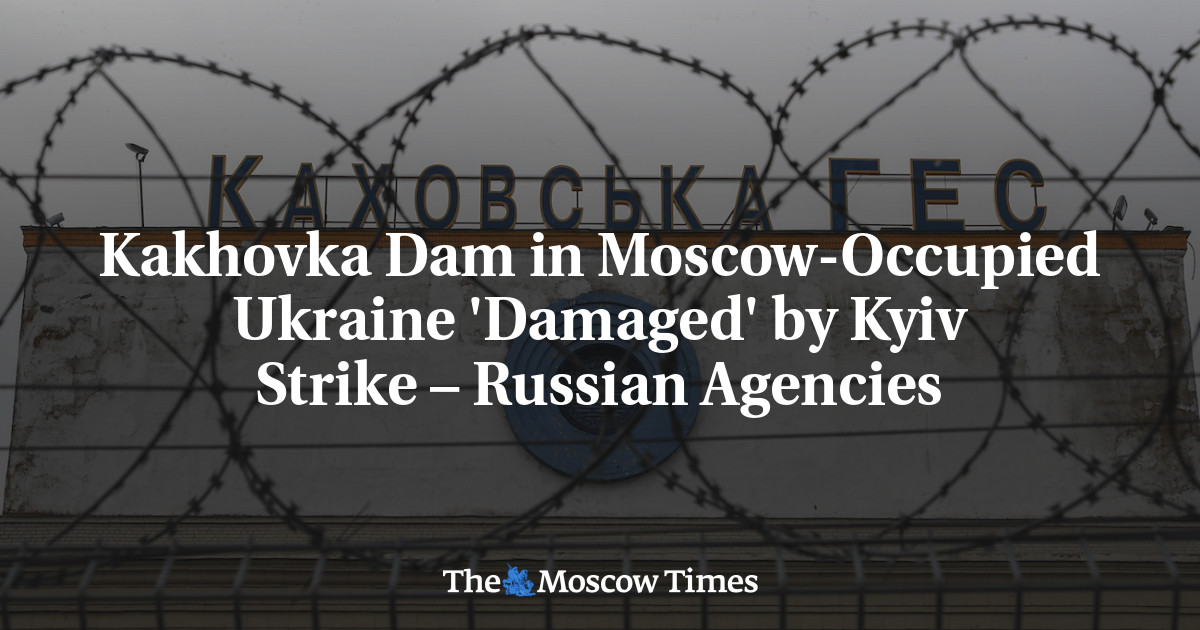CIA Had Intel on Kyiv Plan to Attack Kakhovka Dam
Kelley Beaucar Vlahos / Quincy Institute for Responsible Statecraft
(June 8, 2023) — This week’s bombshell news that the CIA knew of Ukraine’s plans to sabotage the Nord Stream pipeline three months before it blew up hasn’t given pause to some Western political leaders and commentators who are already suggesting that Russia might be behind the Kakhovka Dam explosion in Ukraine on Tuesday.
NATO Secretary-General Jens Stoltenberg blamed Russia without blaming Russia Wednesday, saying “this is an outrageous act, which demonstrates — once again — the brutality of Russia’s war against Ukraine.” An unnamed “senior NATO official” later told NBC that Russia would stand to benefit.
German chancellor Olaf Sholz was a bit more direct, saying he saw the attack as a “new dimension” of Russia’s war, and again, without coming right out and blaming Russia, said that it “fits the way Putin is waging this war.”
While it may be too soon to make “a definitive judgment,” said UK Prime Minister Rishi Sunak, if proven an intentional act, “it would represent the largest attack on civilian infrastructure in Ukraine since the start of the war” and “demonstrate new lows” on behalf of Russia, he told reporters Wednesday as he embarked on a trip to meet with President Biden in Washington.
Also on Tuesday, NBC News reported that “two US officials and one Western official” told the news outlet that “the US has intelligence that is leaning toward Russia as the perpetrator of the attack. US officials were working to declassify some of the intelligence and share it as early as Tuesday afternoon.” Two days later, nothing more has been revealed as the White House continues to maintain that it is looking into Ukraine’s allegations that Russia sabotaged the dam, but doesn’t have any conclusive evidence to say so either way.
For its part, Russia has blamed Ukrainian sabotage for bursting the dam, citing Ukraine’s interest in thwarting Moscow’s own attacks in the Kherson region.

Headline from October 27, 2022
Meanwhile on Twitter, Yale professor Timothy Snyder unleashed a 10-tweet thread to his over 500k followers warning against repeating Russia’s claims, and “the temptation to bothsides a calamity. That’s not journalism.”
“Citing Russian claims next to Ukrainian claims is unfair to the Ukrainians. What Russian spokespersons have said has almost always been untrue, whereas what Ukrainian spokespersons have said has largely been reliable. The juxtaposition suggests a false equality,” Snyder charges.
“Russia was in control of the relevant part of the dam when it exploded. This is an elemental part of the context. It comes before what anyone says. When a murder is investigated, detectives think about means. Russia had the means. Ukraine did not.”
One would think that a bit of chastening is in order. After news that the Nord Stream pipeline had been attacked on Sept. 26, 2022, Western leaders — including former US officials and the Washington Post editorial board — laid the blame at the Russians feet, with the rest of the commentariat taking their cues. Those offering other explanations were called Putin apologists and fools. Over the course of the year, as the Europeans began investigating, officials quietly acknowledged that Russia was likely not behind the attack. Identifying the true culprit remained elusive.
After journalist Sy Hersh reported in detail in February that it was a secret team of special US Navy divers, under orders of the Biden administration, that plotted and carried out the sabotage, he was, too, excoriated and called a crank and a Putin apologist. Still, no official explanation was forthcoming.
Then, unnamed government officials told the New York Times that a rogue group of anti-Russian Ukrainians had rented a boat and carried out the attack themselves, a theory that European leaders have distanced themselves from, and overall, has gotten little traction.
Fast forward to today. That the CIA might have known about a real plot by Ukrainians to blow up the pipelines that looks a lot like the Sy Hersh reported plan (only with Ukrainian divers and a rented boat) should send heads spinning and spines tingling.
If the US government knew of the plan why did Washington put the dogs on the scent of the Russians after the pipeline was actually destroyed? If it was the Ukrainian military, could the US have stopped it? Was there some truth to Hersh’s claims and/or the rogue Ukrainian stories?
We may not know, ever, but this is all the reason why we should be more circumspect as the dam explosion story unfolds. Ukrainian officials are all but accusing the Russians of blowing up the dam, pointing to the fact that the Russians had been occupying it at the time.
The Institute for the Study of War, which has been consistently quoted by all the major US newspapers on this and other stories throughout the year-long war, acknowledge they do not have enough evidence to say who blew up the dam, but turn to their own prior assessments: “Russians have a greater and clearer interest in flooding the lower Dnipro despite the damage to their own prepared defensive positions and forces than the Ukrainians.”
Many media outlets quoted this analysis liberally on Thursday.

As of Wednesday, NBC news was still leading with Ukraine’s charges against Russia and quoting a series of “military analysts” saying that Russia would benefit more from the dam breach because it would severely hobble Ukraine’s military advances. Only toward the end of this report did NBC acknowledge that “analysts did agree that the entrenched defenses Russia had built up for months would be hit, but didn’t see a clear motive for Ukraine.”
The lack of information, which has been a constant throughout this war, should temper the impulse to let emotional or political considerations lead us to conclusions. But that seems to be what is happening again, even though we know, from the Nord Stream sabotage example, that all may not be what it seems right now, and taking a step back from the hot takes might be what’s best for the situation. That is not “Putin apologia” but good sense.
Posted in accordance with Title 17, Section 107, US Code, for noncommercial, educational purposes.
Related News
“Kakhovka Dam in Moscow-Occupied Ukraine ‘Damaged’ by Kyiv Strike – Russian Agencies,” The Moscow Times, November 7, 2022